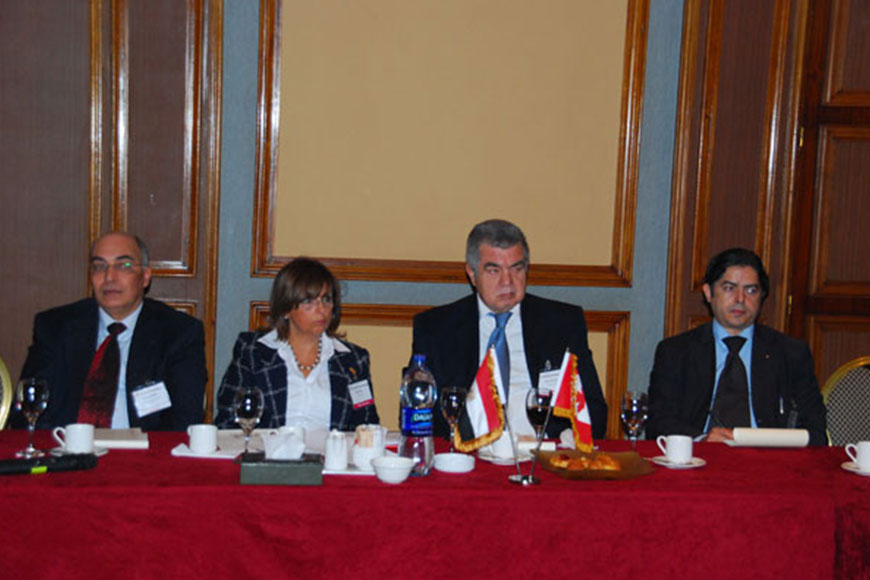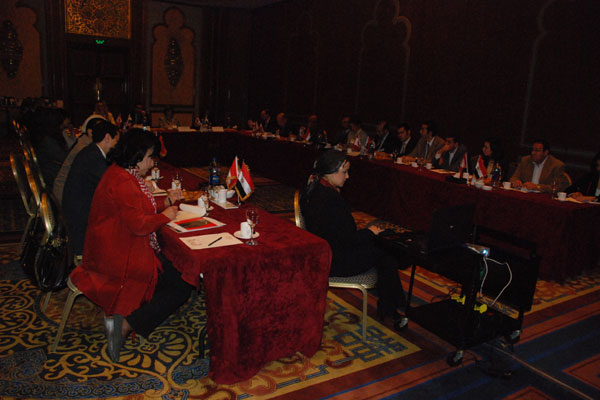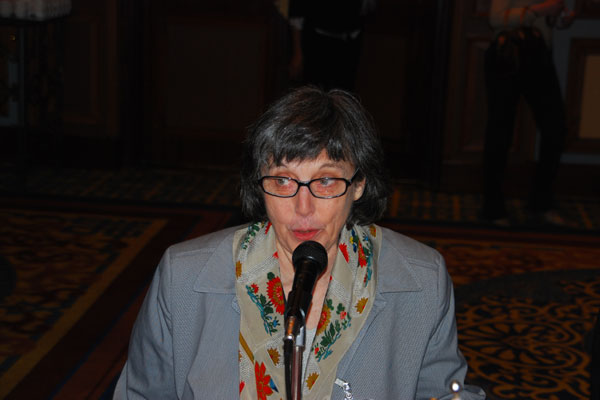
Date
Speaker(s)
Designation
Description
On the 19th of March, Canada Egypt Business Council “CEBC” hosted a breakfast in cooperation with the Egyptian Competition Authority to discuss the topic of “The Competition and Economic Development”. Distinguished guest speakers were: Prof. Eleanor Fox, Walter J. Derenberg, professor of Trade Regulation,
School of Law, New York University and member of the American Bar Association”, Ms. Mona Yassine, Chairperson, the Egyptian Competition Authority, and Dr. Bahaa Ali Eldain, Associate Professor of Law.
In her presentation Ms. Mona Yassine drew the light on some important definitions from the law of competition, stressing on how a product or a service should be positioned in the market specially in a dominant one, by one sole buyer of a certain product, where the impact might affect other products’ positions in the course of price and share, or selling a product under its marginal price or imposing an obligation on a supplier not to deal with any other company, which all affect the public utility. She stressed on the importance of market power versus market share, as well as the importance of a product geographic distribution versus its competitors, warning from the cartel phenomena in the market
which affects it negatively, Ms. Yassine then gave an informative presentation on the
Competition Authority’s role in the Egyptian market, handling trainings to several agencies, and the implementation of the law.
Prof. Eleanor Fox then explained the possibility of having a healthy competition market, without preventing or harming freedom of competition.
She mentioned that competition law is not regulatory, it’s rather a market freeing law to
help the market work smoothly. Shedding the light on the importance of not taking advantage of this free competition law by increasing prices or coordinating procurement bids. The law protects competition and consumers, but not competitors, as well as supporting new and small competitors entering the market versus the giant aggressive competitors dominating the market.
Degrading the market by removing its barriers is essential for opening the market and serving its consumers. The law as mentioned by one of the audience is a “mix of resolutions to serve a better market”. She also stressed on “efficiency concept” in
competition, especially in new developing countries entering the competition world with
its low capital market and finding it hard to face the giant developed countries in their competition, so they have to look more on a robust competition.
“In many developed countries many consumer segments were left out of the market due to high competition, however since the law interfered to prevent aggressive competition, things started to be in control” emphasized Prof. Fox.
On the other hand globalization had an enormous effect which resulted in high concentrated markets and barriers went out of control. Since the European Union treaty law with its economic and efficient value in the market competition law resulted in an international impact. She then shed the light on how competition law helped to have open markets, although it’s not an easy task, where some markets have cartel policy, which is against the open market idea. Prof. Fox commented on the cartel’s issue by advising that they should only have limit usage, as in trade of information exchange, in order to give the space for competition law to be useful. She mentioned the value of competition advantage, and the importance of the government’s role to try to create strategies and ideas for the new and current investors, and not only act as a protector for the competition market. She highlighted the efficiency value in any competition market, and that although it’s a tool that obligates the market to trade off competitors on others, however it helps developing countries to facilitate entrance and growth for new competition in their market; it’s a tailored term that depends on the market power capacity, especially when it comes to high pricing market, where supply and demand is an issue.
Dr. Bahaa Ali Eldain commented on the importance of understanding how competition
law is functional in the Egyptian market, and questioned if Egypt has the right infrastructure to apply such a law, where recently Egypt’s economy is moving fast facing lots of regional and international market challenges to reach their level; especially after the free trade agreement with the Arab League, and at this stage, the competition law appears to solve any multilateral market confusion.
In her discussion Dr. Hoda Rezkana, MP Foreign Affairs Committee Egyptian Parliament, mentioned that the Competition Authority is planning to process educational programs to train the press, media, the society and other business agencies on the new law, and draw their attention to the law’s importance in the Egyptian market, highlighting its correlation with the consumer. ‘‘The media will have an enormous role on increasing consumer awareness on the new law’’, she said. She also stressed on the importance of hiring new calibers in the authority to be trained on how to spread successfully the new law to the whole society and business community.
The discussion was followed by a Q and A session, covering vital topics such as the
advantages and disadvantages of the new competition law in Egypt, and how it can be
applied accurately to be used as a healthy tool within the high rate of competition in the Egyptian market, as well as the credibility of the law of enforcement.









